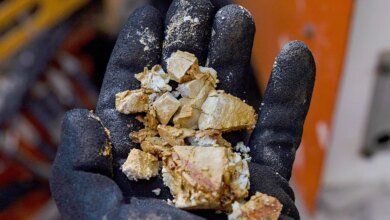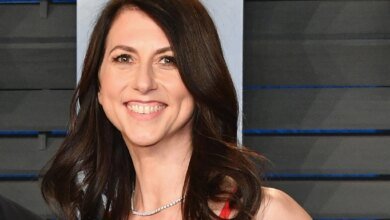DBS CEO Tan Su Shan’s one big lesson for getting through Trump’s tariffs: ‘Diversify’

DBS CEO Tan Su Shan took over the top job just before the economic storm hit. The veteran of the Singapore-based bank, the largest in Southeast Asia, took up his position in March, just days before US president Donald Trump imposed heavy tariffs on much of the global economy. This has presented a challenge for DBS, which serves clients across China, Southeast Asia and India.
Her response to the uncertain economy? Diversification. “If you only sell to the US, you have to diversify,” Tan said at Fortune’s Powerful Women Summit on Tuesday.
Last week, Trump threatened to impose 100% tariffs on Chinese goods by November 1 in response to Beijing’s expanded export controls on rare earth minerals. The US President also imposed 50% tariffs on Brazil and India, two other major non-Western economies.
On Tuesday, Tan noted that Trump’s wide-ranging tariffs could form new connections between these different economies. “China and India, historically, are not that close,” Tan said. “This may actually create more opportunities for Chinese and Indian companies to do more together, certainly in the supply chain.”
Earlier this year, China and India agreed to resume direct flights, which had been suspended since the outbreak of the Covid-19 pandemic. Relations between the two economies have been frosty since deadly border clashes in 2020.
“It will take time to build trust [between India and China]But the opportunities are there,” Tan said on Tuesday.
CEO: ‘Chief Energy Officer.’‘
Tan is the first ever female CEO of DBS. It’s also #1 luckRanking of the most powerful women in Asia and ranked sixth in the MPW World Ranking.
However, Tan downplayed the significance of the honor on Tuesday. “I don’t know how I feel about the word ‘strong,’” she noted. “It’s really a team that gets things done.”
“My job as CEO is to be the energy manager, give energy to the team and make sure everyone is moving in the right direction,” she said.
Learn from an airline
On stage, Tan also reminisced about her early years at DBS. The institution is now the most valuable company in Southeast Asia and the winner of countless awards for good digital products and customer service, but when Tan joined DBS in 2010, the bank had a very different reputation.
“We were the worst bank,” Tan recalls. “Worst bank for customer service, worst bank for long lines, worst bank for product.”
The bank, led by then CEO Piyush Gupta, found inspiration in Singapore’s leading airline, Singapore Airlines. (Both companies boast that Temasek, Singapore’s state investment firm, is a major shareholder.)
“We were all taken to the Singapore Airlines headquarters near the airport and learned how to provide good ‘quality service’,” Tan explained. “The first thing we learned was: How do you provide good service, how do you be respectful, easy to work with, and dependable?”
DBS has now grown from a government-linked bank to a leader in the country’s banking sector. When Tan joined in 2010, DBS generated gross income of S$7.1 billion ($5.5 billion at current exchange rates). This figure rose to 22.3 billion Singapore dollars ($17.2 billion) last year.
DBS shares are up nearly 35% over the past 12 months; Shares of Singapore’s other three big banks, OCBC and UOB, rose 11% and 7%, respectively.
This story originally appeared on Fortune.com
Don’t miss more hot News like this! Click here to discover the latest in Business news!
2025-10-16 02:54:00




